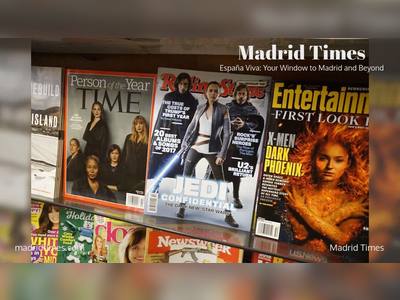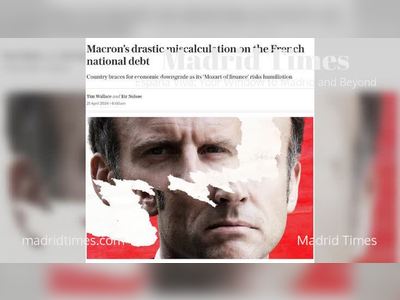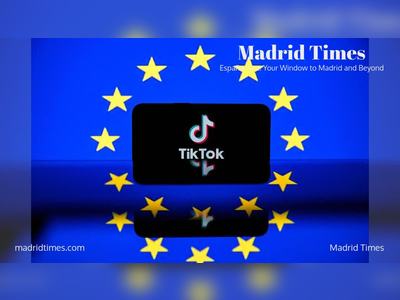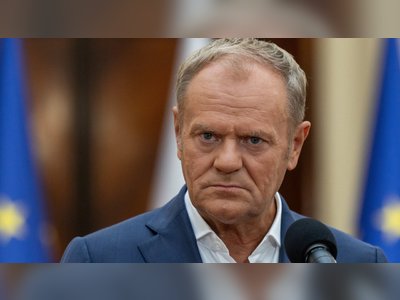U.S. and China Agree on Framework to Shift TikTok to American Ownership
Preliminary deal reached in Madrid; President Trump and Xi Jinping to finalise terms later this week
A framework agreement has been reached between the United States and China that would allow TikTok to remain operational in the U.S. under American control, U.S. Treasury Secretary Scott Bessent announced on September fifteen, 2025.
The accord follows intensive trade negotiations in Madrid involving U.S. and Chinese officials.
Finalisation is expected after President Donald Trump and Chinese leader Xi Jinping speak on Friday.
Under the deal, TikTok’s parent company ByteDance would divest sufficient ownership so that the U.S. side gains controlling interest.
Commercial terms—though agreed—involve private parties and have not been disclosed publicly.
The measure is intended to satisfy U.S. national security concerns tied to foreign adversary control of the app.
The agreement comes in response to a law passed in April two thousand twenty-four, the Protecting Americans from Foreign Adversary Controlled Applications Act, which mandates that apps owned by “foreign adversaries” either divest or be banned in the U.S. The law’s enforcement deadline was most recently extended to September seventeen, 2025.
President Trump has delayed the ban several times while seeking to negotiate a sale or restructuring that preserves TikTok’s presence in the U.S. Opposition to the app has cited national security risks; its defenders argue the large user base, particularly among American youth, merits a solution that retains access.
Despite the positive development, key details remain unresolved: how much ByteDance will retain, which U.S.-based investors will lead the acquisition, how data security and algorithm access will be handled, and how supervision and regulation will ensure compliance.
Discussions in Madrid reportedly covered trade and export control issues alongside TikTok's fate.
The announcement was met with guarded optimism from business and policy observers, who view the deal as essential to avoid the economic and political fallout of a ban.
Many analysts say success hinges on both sides upholding their commitments, especially given Beijing’s previous hesitations and the tight enforcement timeline ahead.
The U.S. government has made clear that national security remains the priority in finalizing the agreement.
Further clarity is expected after the Trump-Xi conversation, which might provide specific investor names or governance arrangements.
Meanwhile, TikTok continues to operate in the U.S. pending full implementation of the framework deal.
The accord follows intensive trade negotiations in Madrid involving U.S. and Chinese officials.
Finalisation is expected after President Donald Trump and Chinese leader Xi Jinping speak on Friday.
Under the deal, TikTok’s parent company ByteDance would divest sufficient ownership so that the U.S. side gains controlling interest.
Commercial terms—though agreed—involve private parties and have not been disclosed publicly.
The measure is intended to satisfy U.S. national security concerns tied to foreign adversary control of the app.
The agreement comes in response to a law passed in April two thousand twenty-four, the Protecting Americans from Foreign Adversary Controlled Applications Act, which mandates that apps owned by “foreign adversaries” either divest or be banned in the U.S. The law’s enforcement deadline was most recently extended to September seventeen, 2025.
President Trump has delayed the ban several times while seeking to negotiate a sale or restructuring that preserves TikTok’s presence in the U.S. Opposition to the app has cited national security risks; its defenders argue the large user base, particularly among American youth, merits a solution that retains access.
Despite the positive development, key details remain unresolved: how much ByteDance will retain, which U.S.-based investors will lead the acquisition, how data security and algorithm access will be handled, and how supervision and regulation will ensure compliance.
Discussions in Madrid reportedly covered trade and export control issues alongside TikTok's fate.
The announcement was met with guarded optimism from business and policy observers, who view the deal as essential to avoid the economic and political fallout of a ban.
Many analysts say success hinges on both sides upholding their commitments, especially given Beijing’s previous hesitations and the tight enforcement timeline ahead.
The U.S. government has made clear that national security remains the priority in finalizing the agreement.
Further clarity is expected after the Trump-Xi conversation, which might provide specific investor names or governance arrangements.
Meanwhile, TikTok continues to operate in the U.S. pending full implementation of the framework deal.
Translation:
Translated by AI
AI Disclaimer: An advanced artificial intelligence (AI) system generated the content of this page on its own. This innovative technology conducts extensive research from a variety of reliable sources, performs rigorous fact-checking and verification, cleans up and balances biased or manipulated content, and presents a minimal factual summary that is just enough yet essential for you to function as an informed and educated citizen. Please keep in mind, however, that this system is an evolving technology, and as a result, the article may contain accidental inaccuracies or errors. We urge you to help us improve our site by reporting any inaccuracies you find using the "Contact Us" link at the bottom of this page. Your helpful feedback helps us improve our system and deliver more precise content. When you find an article of interest here, please look for the full and extensive coverage of this topic in traditional news sources, as they are written by professional journalists that we try to support, not replace. We appreciate your understanding and assistance.










